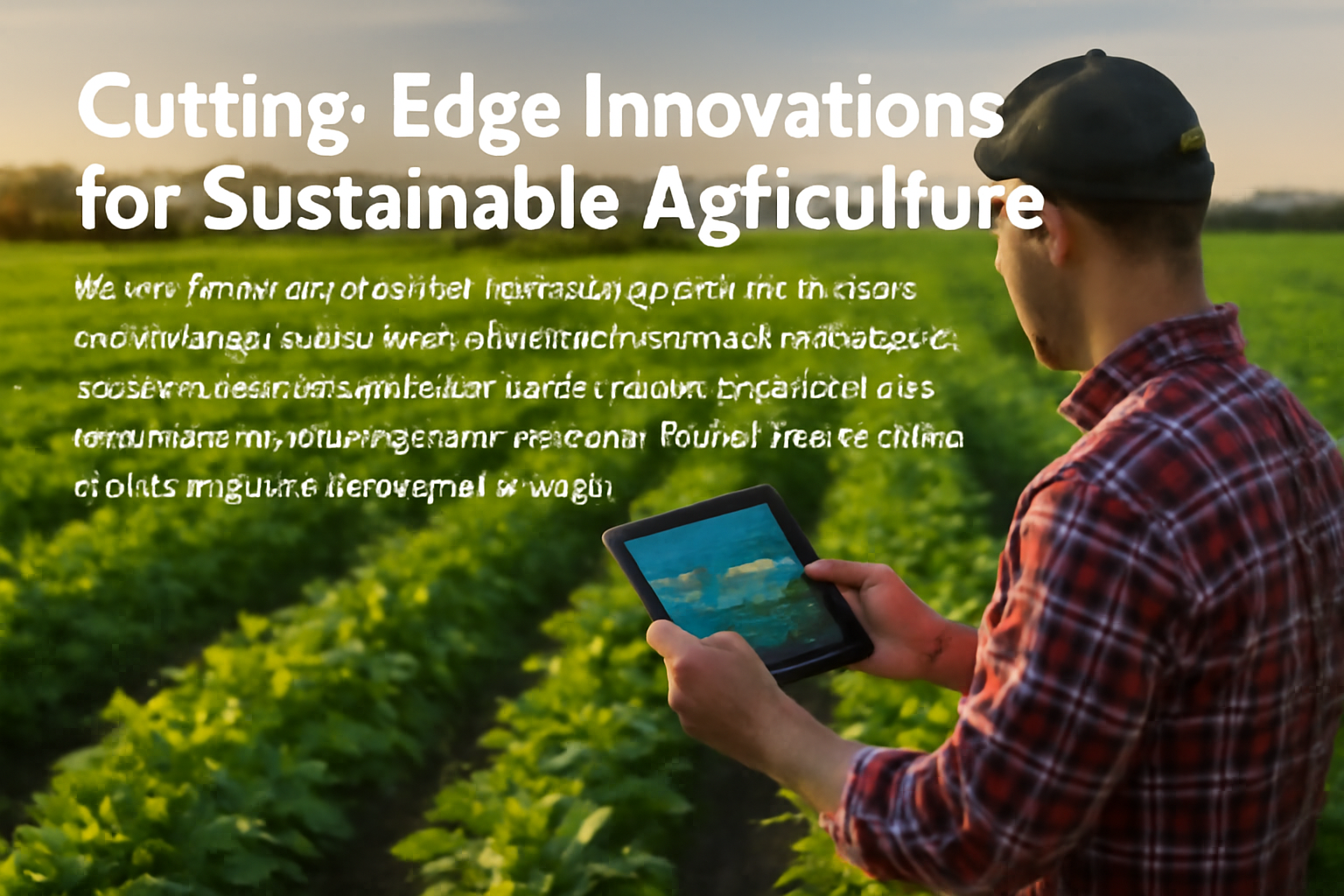Location
Mount Vernon, WA 98274
Location
Mount Vernon, WA 98274

As the global population continues to rise, the demand for sustainable agricultural practices becomes more urgent. Farmers are increasingly turning to technology to enhance crop management, ensuring food security while minimizing environmental impact. This article explores cutting-edge innovations that are shaping the future of agriculture.
The agricultural landscape is undergoing a transformation driven by the imperative for sustainability. With the global population projected to reach nearly 10 billion by 2050, the demand for food is expected to increase significantly. This challenge has sparked interest in sustainable crop management practices that leverage technology to boost productivity while safeguarding the environment.
One of the most promising advancements in this field is precision agriculture. Utilizing GPS technology, drones, and IoT (Internet of Things) devices, farmers can monitor their crops’ health in real time. This data-driven approach allows for targeted interventions, such as precise watering and fertilization, which not only conserves resources but also enhances crop yields. For instance, recent studies have shown that fields monitored with precision agriculture technology can see yield increases of up to 20% compared to traditional farming methods.
In addition to precision agriculture, vertical farming is gaining traction as an innovative solution to space and resource limitations. By growing crops in vertically stacked layers, often in controlled indoor environments, vertical farms can produce food year-round with minimal water usage and no pesticides. This method reduces transportation emissions by bringing food production closer to urban centers, addressing both sustainability and food access issues.
Another significant development is the use of artificial intelligence (AI) and machine learning in predicting crop diseases. Algorithms can analyze data from various sources, such as weather patterns and soil conditions, to forecast potential outbreaks. This predictive capability enables farmers to take preventive measures, reducing crop losses and the need for chemical interventions, thereby promoting a healthier ecosystem.
Furthermore, the focus on regenerative practices is leading to innovations in soil health management. Techniques such as cover cropping and reduced tillage are being integrated with technology to monitor soil conditions more effectively. Farmers can now use soil sensors to track moisture levels and nutrient content, allowing for more informed decisions that enhance soil fertility and carbon sequestration.
However, the adoption of these technologies also comes with challenges. Access to technology and training can be barriers for smaller farms, particularly in developing regions. Ensuring that all farmers can benefit from these advancements is essential for achieving a truly sustainable agricultural future.
As we look ahead, the intersection of technology and sustainable practices offers exciting possibilities for the agricultural sector. By embracing innovations that prioritize both productivity and environmental stewardship, farmers can help secure food for future generations while protecting the planet.